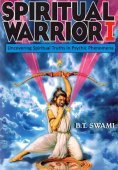Dream, Dreaming: 3 definitions
Introduction:
Dream means something in Hinduism, Sanskrit, Jainism, Prakrit. If you want to know the exact meaning, history, etymology or English translation of this term then check out the descriptions on this page. Add your comment or reference to a book if you want to contribute to this summary article.
Images (photo gallery)
(+4 more images available)
In Hinduism
Shaivism (Shaiva philosophy)
Source: SOAS University of London: Protective Rites in the Netra TantraDream symbolism in the Svacchanda-tantra (chapter 4).—Brahmins have long been interpreters of dreams, often doing so for kings. They look to dreams to uncover individualized symbols and desires and use predetermined cultural markers to assess dreams as auspicious (śubha) or inauspicious (aśubha). Once categorized, rites are performed to counter the negative effects of inauspicious dreams. [...] Before interpreting dreams, the Mantrin himself undergoes purification rites. In order to bring another person into the secret Tantric fold, he himself must already be unified with the divine. The student too becomes purified during the night as he witnesses the Mantrin’s performance of rituals prior to sleep.

Shaiva (शैव, śaiva) or Shaivism (śaivism) represents a tradition of Hinduism worshiping Shiva as the supreme being. Closely related to Shaktism, Shaiva literature includes a range of scriptures, including Tantras, while the root of this tradition may be traced back to the ancient Vedas.
Vedanta (school of philosophy)
Source: ORA: Amanaska (king of all yogas): (Advaita Vedanta)Dreaming is denoted by the Sanskrit term Svapna, according to the Māṇḍūkyopaniṣatkārikā 3.29.—Accordingly, while discussing the dream and waking states: “Just as in the case of dreaming (svapna), the mind, which is a reflection of duality, is active because of Māyā, so the waking mind, which is [also] a reflection of duality, is active because of Māyā. [...] That very [mind, free of thought and restrained,] is fearless Brahma, [which is] the light of gnosis [pervading] everywhere. [It is] unborn, devoid of sleep and dreaming (asvapa), unnamed, formless, manifested [all] at once and omniscient. [This statement] is not figurative in any way”.

Vedanta (वेदान्त, vedānta) refers to a school of orthodox Hindu philosophy (astika), drawing its subject-matter from the Upanishads. There are a number of sub-schools of Vedanta, however all of them expound on the basic teaching of the ultimate reality (brahman) and liberation (moksha) of the individual soul (atman).
In Jainism
Jain philosophy
Source: archive.org: Anekanta Jaya Pataka of Haribhadra SuriDreams in Jain philosophy are not (altogether) an unreality.—The causes of a dream are (iv) the objects experienced, seen, thought of and heard, (v) the results of prakṛti such as phlegm etc., (vi) a celestial being, (vii) a country having a great quantity of water, (viii) merit and (ix) demerit. Hence a dream is not a non-entity like a flower in the sky.—Cf. Anekāntajayapatākā-prakaraṇa [Vol. II, P. 75, ll. 23-24]
-
See also (Relevant definitions)
Full-text (+1016): Svapna, Suptajnana, Svapa, Svapnavastha, Samvesha, Duhsvapna, Suptavijnana, Svapnavicara, Darshana, Svapnopama, Asvapna, Jagrat, Svapnasrishti, Susvapna, Supina, Sapana, Swapn, Svapnanta, Svapnya, Svapnadrish.
Relevant text
Search found 351 books and stories containing Dream, Dreaming; (plurals include: Dreams, Dreamings). You can also click to the full overview containing English textual excerpts. Below are direct links for the most relevant articles:
Yoga Vasistha [English], Volume 1-4 (by Vihari-Lala Mitra)
Chapter XLII - Philosophy of dreaming < [Book III - Utpatti khanda (utpatti khanda)]
Chapter CLXV - On the similarity of waking and dreaming < [Book VII - Nirvana prakarana part 2 (nirvana prakarana)]
Chapter CXLVIII - Investigation into the nature of dreams < [Book VII - Nirvana prakarana part 2 (nirvana prakarana)]
Brahma Sutras (Shankaracharya) (by George Thibaut)
III, 2, 3 < [Third Adhyāya, Second Pāda]
III, 2, 4 < [Third Adhyāya, Second Pāda]
III, 2, 6 < [Third Adhyāya, Second Pāda]
Vaisheshika-sutra with Commentary (by Nandalal Sinha)
Sūtra 9.2.8 (Cognition accompanying dreaming, how produced) < [Chapter 2 - (? Inferential cognition)]
Sūtra 9.2.7 (Dream, how produced) < [Chapter 2 - (? Inferential cognition)]
Sūtra 9.2.9 (Another cause of dreaming and of cognition in dreaming) < [Chapter 2 - (? Inferential cognition)]
Chandogya Upanishad (english Translation) (by Swami Lokeswarananda)
Parables of Rama (by Swami Rama Tirtha)
Story 154 - Contrary cures contrary < [Chapter XXIV - Thought Power]
Story 156 - Heaven or Hell our Own Creation < [Chapter XXIV - Thought Power]
Story 104 - The Snake of True Renunciation < [Chapter XV - Renunciation]
The Songs of my Dream < [January – March, 1980]
The Tale of The Friar with Green Beard < [April 1964]
The Dream-Lover < [May-June 1933]
Related products
(+2 more products available)
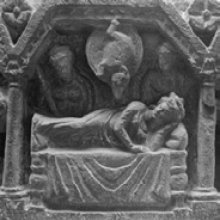
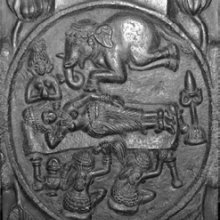
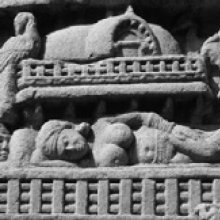
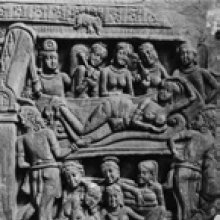
.jpg)
.jpg)





